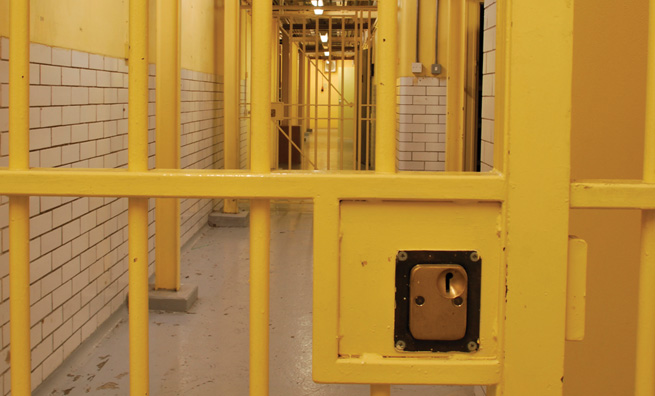The most notorious teacher cheating scandal occurred in Atlanta, Ga. (see “Teaching How to Cheat,” Strategic Finance, November 2011). On April 1, 2015, 11 of 12 former Atlanta public school educators were found guilty of conspiring to cheat on student standardized tests, a felony racketeering charge. The maximum penalty under the racketeering law is 20 years in prison. Some individuals were also convicted of other crimes such as making false statements. The remaining 23 individuals indicted in the case have either died or had reached a plea agreement with the prosecutor. At the sentencing hearing, the judge gave the maximum 20-year sentence to the three highest administrators—seven years in prison, with the rest served as probation. (Two weeks later, the judge reduced the sentence to three years of prison followed by seven years of probation and community service.) Five lower-ranking educators received sentences of at least one year in prison. Two defendants admitted guilt, waived their right to appeal, and didn’t receive prison time.
According to an April 1, 2015, Washington Post story, the conspiracy involved extreme pressure on teachers and administrators to achieve target scores set by the school board. The indictment said, “The refusal of [former school superintendent] Beverly Hall and her top administrators to accept anything other than satisfying the targets created an environment where achieving the desired end result was more important than the students’ education.” Tone at the top and how it filters down is perhaps the most critical factor that prevents wrongdoing and encourages ethical and productive behavior.
A July 6, 2011, story in the Atlanta Journal Constitution provided interesting details of how the fraud was implemented:
* Superintendent Hall and her top aides ignored, buried, destroyed, or altered complaints about misconduct; claimed ignorance of wrongdoing; and accused naysayers of failing to believe in poor children’s ability to learn. (Hall died of cancer in March 2015 and was too ill to be tried with the other offenders.)
* Area superintendents silenced whistleblowers and rewarded subordinates who met academic goals by any means possible.
* Unethical and potentially illegal behavior was present at every level of the bureaucracy, allowing district staff to reap praise and sometimes bonuses by misleading the children, parents, and community they served.
The article also detailed examples of the misconduct that occurred. The process of erasing wrong answers was, in some cases, so sophisticated that plastic transparency sheets were used to make changing answers easier. In at least one case, the process took place in a teacher’s home. Teachers arranged classroom seating to make it easier for lower-performing students to cheat off the better-performing students. First and second grade teachers used voice inflection while reading the test to identify the correct answer. One student refused to take the test but still passed.
The most critical aspect of the Atlanta case was the prosecution’s ability to convince the jury that the unethical and illegal behavior exhibited by Hall, the teachers, and administrators constituted racketeering, not just ordinary fraud. It was an attempt to deter future wrongdoing. The indictment states:
“As part of the conspiracy, employees of APS [Atlanta Public Schools] who failed to satisfy targets were terminated or threatened with termination, while others who achieved targets through cheating were publicly praised and financially rewarded…Beverly Hall, while an employee of a government institution in breach of her duties as such employee, did unlawfully take U.S. currency, the property of APS, with the intention of depriving said owner of said property, by causing APS to issue her a monetary bonus based on 2006 [test] results for schools in APS which she knew were false.”
In a news conference following the verdict, Atlanta District Attorney Paul L. Howard Jr. said, “Our entire effort in this case was simply to get our community to stop and take a look at our educational system.” He added, “I think because of the decision of this jury today that people will stop. I think people will stop, and they will make an assessment of our educational system.” According to a New York Times article, defense attorneys called the verdicts an overreach. They were angered by the judge’s decision to handcuff their defendants and start their sentences immediately.
Using racketeering law, which was designed to heavily punish criminal gangs, to convict school teachers and administrators raises an interesting question: Why haven’t other prosecutors used it in other fraud cases, for example, those involving the financial crisis and Great Recession? According to a ProPublica article, “Why No Financial Crisis Prosecutions? Ex-Justice Official Says It’s Just too Hard,” top executives at the major companies in the financial crisis aren’t being prosecuted because the Justice Department feels that “holding top Wall Street executives criminally accountable is too difficult a task.” This seems to be an admission by Justice that it just doesn’t have enough resources to cope with superior legal counsel available to Wall Street executives. The Securities & Exchange Commission (SEC) constantly requests more resources to pursue cases of civil wrongdoing.
Monetary fines, even large penalties, aren’t preventing illegal and unethical behavior by elected officials, government employees, and business executives. The threat of prison time may be the best answer for stopping widespread wrongdoing.

June 2015



